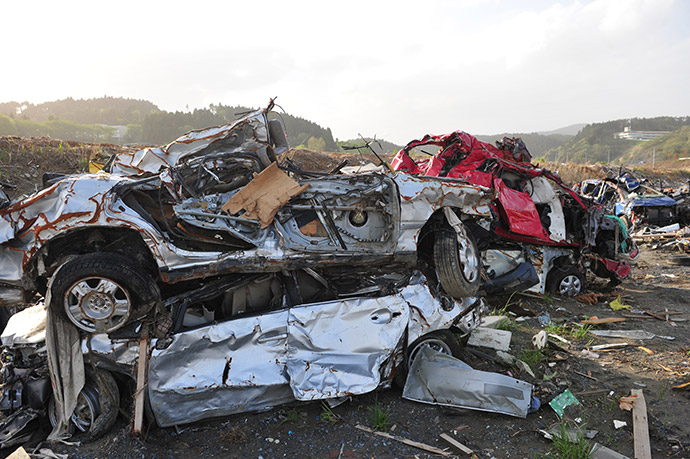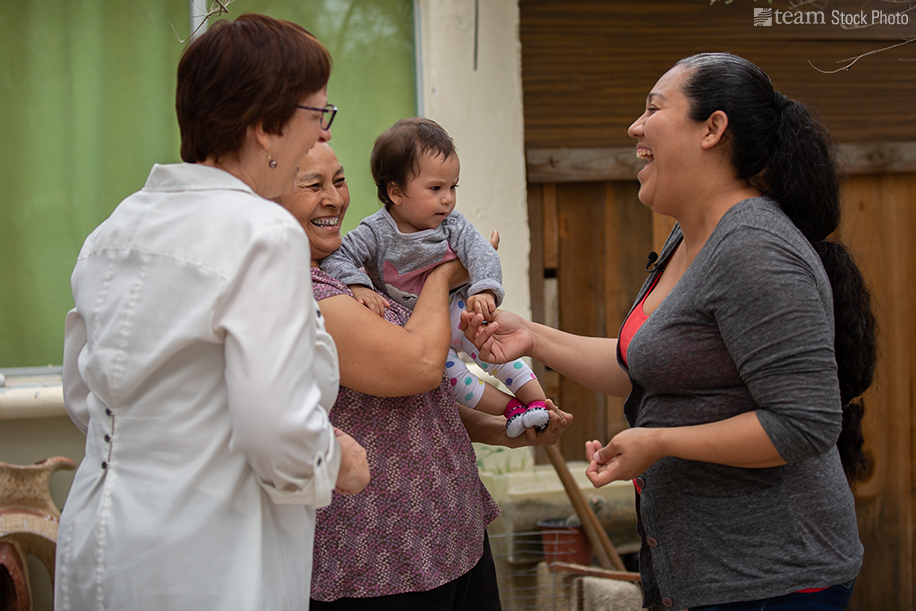
Missions Resources
What You Should Know When Supporting Disaster Relief
November 26, 2013
by Mark Watson

Today, TEAM Chief Advancement Officer Arnie Adkison contributes to the blog. He addresses how you can make the most difference when tragedy strikes, and shares some of how TEAM decides when to get involved.
Last week a retired TEAM missionary couple in southern Illinois had no idea that as they headed out to church, the home they would later return to was about to become rubble. While they prayed and worshiped with their church community, a tornado ripped through their town and destroyed their house and everything in it, leaving them with little more than the clothes they were wearing.
Disasters happen. It’s a heartbreaking fact of our world.
It’s been a few weeks now since Typhoon Haiyan (known as Typhoon Yolanda in the Philippines) wreaked her havoc on the island nation. Haiyan is likely the strongest tropical cyclone to make landfall in recorded history. More than 5,200 people were killed, with hundreds of thousands of others displaced.
It’s only natural in such times that people want to help. Even more so for followers of Jesus. Our sense of compassion can be overwhelming when we hear of such devastation. That’s why TEAM staff have come together to support our retirees in Illinois and help meet their basic needs.
We’ve gotten inquiries about whether TEAM was going to raise funds for disaster response in the Philippines. After all, we have missionaries on the ground there. We’ve had to ask ourselves the same question that you likely do: How can I best help?
4 Recommendations for Helping with Disaster Relief
First, never underestimate the power of prayer. In our passion to do something more “tangible”, it’s very easy to feel like our prayers don’t matter much. But our prayers are heard by the God of all peace, and to paraphrase the psalm and modern worship song, “he is mighty to save!”
Second, trust the experts for the immediate relief work. Not all international ministries are structured to do large-scale disaster relief. Faith-based relief agencies like World Vision, Samaritan’s Purse and the Salvation Army, plus international relief agencies like the Red Cross, have been doing disaster response for decades, and are very good at what they do. And as seen after the devastation of Haiyan, even they can run into significant obstacles in getting relief and care to those who need it most. Carefully consider before jumping into disaster response, whether volunteering as an individual or responding as a ministry. After Katrina, many of my fellow Texans felt they were close enough to drive over to help right after the storm. Some of them didn’t think about where they would sleep, what they would eat, or how they would travel, and hundreds ended up stuck in shelters with the victims of the storm. If you want to serve as a disaster volunteer, connect with an aid agency before there’s any disaster, get proper training, then you’ll be much better prepared to assist.
Donate money. You’ll be tempted to collect stuff—clothes, toiletries, bottled water, whatever—and try to get it to those in need. But cash gifts actually make a significantly larger impact. Ministries and relief agencies can spend cash on where most needed, and they can spend that cash much closer to the impact areas, helping the recovery of local economies. And cash does not require high shipping costs. It may not feel quite as “cool” but it will make the most impact.
Find a way to remember to help over the long haul. I was working at World Vision three years ago when the line of killer tornadoes hit the southeastern United States. Many churches wanted to help right after the storm (and the ones with trained volunteers did some great work!). But six months later, when we were looking for teams to help rebuild an impoverished suburb of Tuscaloosa, Ala., it was a challenge to get volunteer groups in. Why? We Americans tend to have short-term focus on solving problems. After six months, no one was thinking about how to help in Alabama, but it was precisely then that many of the most vulnerable needed the kind of assistance anyone can give.
At TEAM, we seek God’s discernment to know the areas in which we have a lot of expertise and the areas in which we may not. We want to guide donors to make the best kingdom investment of their financial resources, whether that is at TEAM or elsewhere. We have made appeals in the past for disaster relief efforts – particularly after the 2011 earthquakes and tsunami in Japan, where TEAM has been on the ground for more than 100 years and has around 70 missionaries. But TEAM decided not to do a fundraising push of our own for the Philippines. One of the supporting churches for a missionary there did make a significant (unsolicited) gift, and that will go to help local churches on the islands serve affected areas over the long haul. For others who asked, we pointed them to Samaritan’s Purse or World Vision.
Compassion has many kingdom partners.

